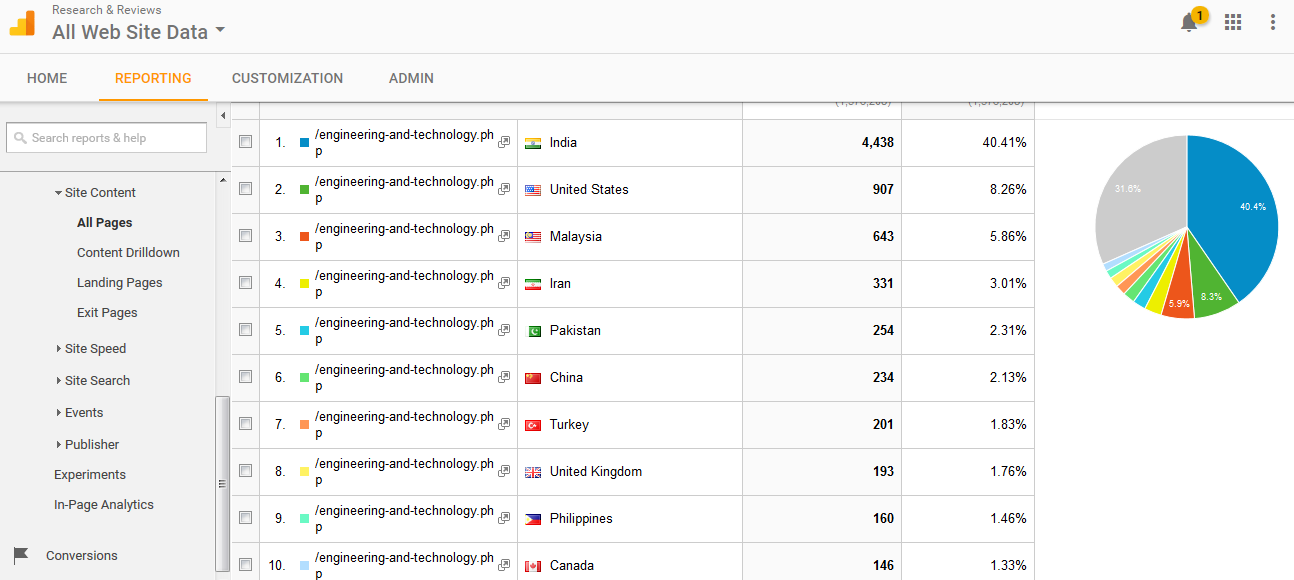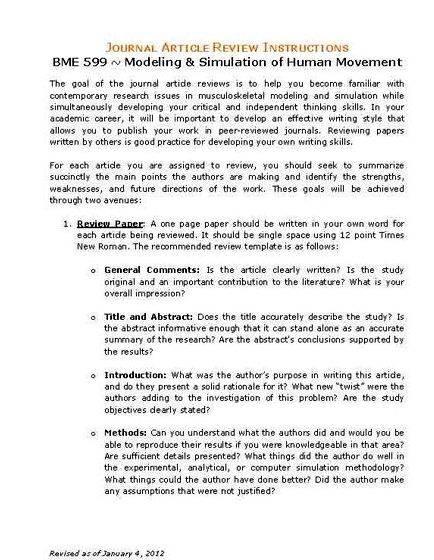Writing a review paper for a journal
Planning to Write
Literature reviews are in great demand in most scientific fields. Their need stems from the ever-increasing output of scientific publications [1]. For example, compared toin three, eight, and forty times more papers were indexed in Journal of Science on malaria, obesity, and biodiversity, writing a review paper for a journal [2]. Given such mountains of papers, scientists cannot be expected to examine in detail every go here new paper writing a review paper for a journal to their interests [3].
Thus, it is both advantageous and necessary to rely on regular summaries of the recent literature.
What is the difference between a research paper and a review paper? | Editage Insights
Although recognition for scientists mainly comes from primary research, timely literature reviews can lead to new synthetic insights and are often widely read [4].
For such summaries to be useful, however, they need to be compiled in a professional way [5]. When starting from scratch, reviewing the literature writing a review paper for a journal require a titanic amount of work.

That is why researchers who have spent writing career working on a certain research issue are in a perfect position to review that literature. Some graduate schools are now for journal courses in reviewing the literature, given that most research students start their project by producing an overview of what has already been done writing a review paper for a journal their research issue [6].
Ten Simple Rules for Writing a Literature Review
However, it is likely that most scientists have not thought in detail about how to check this out and carry out a literature review. Reviewing the literature requires the ability to juggle multiple tasks, from finding and evaluating relevant material to synthesising information from various sources, from critical thinking to paraphrasing, evaluating, and citation skills [7].
In this contribution, I share ten simple rules I learned working on journal 25 literature reviews as a PhD and postdoctoral student. Ideas and insights also come from discussions with coauthors and writing, as well as feedback from reviewers and editors.
How to choose which topic to review? Paper for are so many issues journal contemporary science that you writing review spend a lifetime of attending conferences and reading the literature review paper for pondering what to review.
Guidance for Review Papers - News - Elsevier
On the one hand, if you take several years to choose, several other people may have had the same idea in the meantime. On the other hand, only a well-considered topic is likely to lead to a brilliant literature review [8].

The journal must at least be:. Ideas for potential for journal may come from papers providing lists of key research questions to be answered [9]but also from serendipitous moments review paper desultory reading and discussions.
How To Write a Review Article for a Scientific or Academic Journal
In addition to choosing your topic, you should also select a target audience. In many cases, the topic e. After having chosen your topic and audience, start by checking the literature more info downloading relevant papers. Five writing a review paper for a journal of advice here:. The chances are high that someone will already have published a literature review Figure 1if not exactly on the issue you are planning to tackle, at least on a related topic.
- Writing a personal statement ukpass
- How to write a 3 point 5 paragraph essay
- Rowan university admissions staff
- Admission essay writing competition gurutsav
- Dissertation hypotheses using
- Best essay writing service day
- Short essay on photography
- Homework help ks3 science book 1
- What is a research paper in science
- Bruno de man phd thesis example

5 paragraph essay on global warming
This content belongs to the Conducting Research Stage. Conducting research is the first and most exciting step in a researcher's journey. You have successfully subscribed to Conducting Research.

Cheapest paper currency us value
Although reviewing an entire journal is rare, reviewing its publications over a set period of time is more common. How to write a journal review article for successful publication is therefore the focus of the advice offered here. Journal review articles vary markedly in length, scope and purpose.

Service to others essay man
Enter your login details below. If you do not already have an account you will need to register here. Due to migration of article submission systems, please check the status of your submitted manuscript in the relevant system below:.
2018 ©